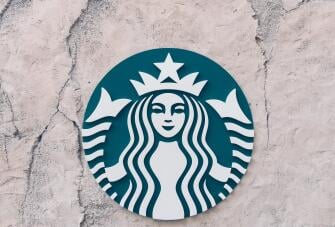How Much Do Hotel Owners Make?
Becoming the owner of a hotel can be a deeply rewarding experience, but it does require a sizable investment. Before you embark on your new hospitality adventure, it’s important to make sure the investment would be the right option for you.
In this blog, we’ll be examining the average salary of hotel owners, how much a hotel makes a year, and the various expenses that come with hotel ownership. If you’ve ever wondered if hotel owners are rich, this is the blog for you.
Understanding hotel profitability
If you're thinking about becoming aspiring hotel owners, understanding your hotel’s profit margin is a must.
What is a hotel’s profit margin?
Many owners will take a different view on the important numbers for their business, however there are some key metrics that apply to hotels, which many new hoteliers pay too little attention to.
In the simplest terms, it’s the percentage of revenue that turns into profit after all the operating costs are taken out. So if your hotel pulls in $100,000 in room revenue (after all sales taxes have been deducted), but you spend $80,000 on expenses, both fixed costs like rent and property taxes and variable costs like utilities and guest amenities, your profit margin would be 20%.
Important profitability metrics
Let’s talk about some important hotel profitability metrics you should keep an eye on:
-
Revenue per Available Room (RevPAR): It measures how much money you're making from your available rooms, whether they're occupied or not. You can calculate it by multiplying your average daily rate (ADR) by your occupancy rate.
-
Gross Operating Profit per Available Room (GOPPAR): This metric helps you understand your hotel’s overall profitability. It looks at your gross operating profit (GOP) divided by the number of available rooms. It’s great for comparing performance across similar hotels.
-
Occupancy Rates: This metric shows you the percentage of your available rooms that are actually booked. Higher occupancy rates typically mean higher revenue, which is what every hotel owner dreams of!
-
Average Daily Rate (ADR): This one’s simple. It’s the average price you charge for your rooms. Increasing your ADR is a surefire way to boost your revenue and profit margins.
Keeping track of these metrics helps you gauge the hotel’s profitability and identify areas where you can improve. Whether you're managing a luxury hotel or a small hotel spot, understanding these numbers is key to running a successful operation.
Factors Affecting Hotel Profitability
Several factors can make or break your hotel's success. Let’s take a look at a couple of the biggest ones:
Type of hotel
Whether you're operating a luxury hotel, an independent hotel, a franchise hotel, or a boutique hotel, each comes with its unique set of operational costs, target markets, and pricing strategies.
-
Luxury hotels: These typically have higher room rates and can command more for amenities and services, which can lead to higher profits. However, they also have operational costs like staffing, maintenance, and marketing that can be substantial.
-
Boutique hotels: These places focus on offering a unique experience, often at a premium price. Their occupancy rates can be impacted by location and guest experience, so you’ll need to maintain high standards to ensure repeat business.
-
Independent hotels: While these may have lower franchise fees, they might also struggle with brand recognition. This can affect direct bookings and revenue compared to a franchise hotel with a strong brand name.
-
Airbnb: This doesn't really count as a hotel, but you could still compare its costs and revenue potential. Since Airbnb hosts don’t have the same costs as traditional hotels (like franchise fees or large-scale staffing), their operating income can sometimes be higher. However, variable costs like cleaning fees, maintenance, and platform commission fees can eat into profits. Plus, regulations and competition in certain markets can make it harder to maintain consistent revenue.
Location matters
You’ve probably heard it before: location, location, location! This saying holds true in the hospitality industry. The spot you choose for your hotel can significantly impact your occupancy rates and overall profitability.
-
Prime locations: Hotels in bustling areas—think near tourist attractions, business hubs, or beautiful beaches—tend to draw in more guests. Higher foot traffic means more available rooms filled, which boosts your room revenue and overall profitability.
-
Competition: If you’re in a location with numerous hotels (especially larger hotels or chains), you might find it harder to stand out. This means you’ll need effective marketing strategies to attract guests and possibly adjust your room rates to stay competitive.
-
Local demand: Understanding the higher demand for hotel rooms during peak seasons, local events, or holidays can help you adjust your pricing strategies. Offering unique amenities or exceptional service can also give you an edge in a crowded market.
Hotel Revenue Streams
Revenue streams are the different sources of income that a hotel generates. Think of them as the various ways your hotel can make money beyond just charging for rooms. Here are the main types of revenue streams you might find in the hotel business:
-
Room revenue: This is the bread and butter of any hotel and a key driver of its operating income. It includes all the money made from guests staying in your rooms. Room rates can vary based on factors like occupancy rates, location, and the type of hotel you run. Whether it’s a standard room or a luxury suite, every booking adds to your bottom line.
-
Food and beverage sales: Many hotels offer dining options, from casual cafés to fine dining restaurants. This revenue stream can be significant, especially if you provide room service or host events. Think about all those hungry guests looking for a bite after a long day!
-
Event hosting: If you have the space, hosting events like weddings, conferences, or parties can be a fantastic revenue stream. Hotels often have banquet halls or meeting rooms that can be rented out, bringing in income from both the event space and any catering services you provide.
-
Spa and wellness services: Offering spa treatments, fitness classes, or wellness packages can attract guests looking for relaxation and pampering. These services can significantly boost your overall revenues, especially in luxury or boutique hotels.
-
Ancillary services: This includes everything from laundry services and transportation to partnerships with local attractions. Providing guests with convenient options not only enhances their experience but also adds to your revenue.
-
Direct bookings: Encouraging guests to book directly through your website or front desk (instead of using online travel agencies) can improve your profit margins since you’ll avoid paying those commission fees.
-
Membership and loyalty programs: Many hotels (especially the biggies like the Marriott International or Hilton) offer loyalty programs that encourage repeat business. These programs can drive customer loyalty and create additional revenue streams through sign-up fees or exclusive offers.
How much do hotel owners make per year?
According to the career advice website Shmoop, the average salary for a hotel owner in the US is between $40,000-$60,000. This can vary wildly depending on the region, the type of hotel, and the reputation of the business. [1]
Hotel POS system that provides excellent hosting services
Focus less on admin and more on guest satisfaction. Automate and integrate hotel operations, and bring all your processes together in one hotel point of sale (POS) system.
Things to consider before buying a hotel
Now, there's a few things you'll have to think about before you take that leap and buy a hotel. This includes:
Profit vs. income
Conflating profit and income is an easy mistake to make, but it’s one you’ll need to avoid as a hotel owner. In order to count your hotel profits as salary, you can’t use that profit for anything but income. If emergency repairs need to be made and are taken from the hotel’s profit, then your salary as the hotel owner was just reduced by the cost of the repairs.
Profits are affected by several factors, including:
-
Business taxes
-
Business loan repayments
-
Necessary items for your hotel (new equipment, repairs)
-
Employee salaries
-
Annual/semi-annual business insurance premiums
You may also have additional annual expenses that need to be considered. All of the above items will reduce your income because they’re taken out of your profit. Your income equals whatever’s left from the hotel profits once your business expenses are paid, impacting your hotel profit margins and overall hotel profitability.
Franchise fees
Franchise fees can be a nasty shock for unprepared franchise hotel owners. While there is the initial, one-time franchise fee for the privilege of using the hotel’s brand name, logo, etc, there may also be additional monthly or annual franchise fees to pay.
For instance, you might be required to pay a monthly marketing fee, depending on your franchise agreement. This fee helps the franchisor pay for marketing the brand in national and/or local markets, which directly benefits you.
You’ll also probably be required to pay a monthly royalty to the franchisor, as well, which could range from 4-12% of your profits, depending on your franchise agreement. Both of these recurring franchise fees, along with hotel management fees, are paid from your profits, further reducing your actual income.
Location and market research
The hotel’s location can significantly impact its success and profitability. Conduct thorough market research to assess the local demand for hotel rooms, the competition, and the area’s growth potential. Look for indicators such as:
-
Tourism trends: Are there upcoming events, festivals, or attractions that could draw guests?
-
Accessibility: Is your hotel easily accessible via major roads, airports, or public transport?
-
Local amenities: Proximity to restaurants, shopping centers, and recreational activities can enhance guest satisfaction and attract more bookings.
Being in prime locations often leads to higher occupancy rates and increased revenue, directly affecting your hotel profit and long-term success.
Type of hotel
Of course, which type of hotel franchise you operate can affect your annual profit, as well.
You might be surprised at the number of options you have here. There are upscale/luxury franchises, economy hotels, and mid-level hotels.
Luxury hotel franchises include brands like Wyndham, Hilton Hotels and the Ritz-Carlton. These types of hotels typically include restaurants, bars, and more upscale options like room service, in-hotel spas, and hotel rooms equipped with the latest technology.
It’s estimated that the average initial start-up cost for a luxury franchise can run into many millions of pounds. That’s a lot of money to invest upfront, but you will be able to charge higher room prices and potentially generate greater profits long-term.
Economy franchises include brands like Travelodge, Yotel, and Sleep Inn. They offer frills-free rooms and may have cold breakfast options, but don’t typically offer hot breakfast items. On average, the initial start-up costs for an economy franchise are around the mid-hundred thousands to the low millions.
Mid-level franchises include brands such as Clarion Hotels, Best Western, and Park Inn by Radisson. These chains typically offer a hot breakfast and may have additional amenities such as a gym and/or pool area. Average initial start-up costs for a mid-level hotel chain come in at around tens of millions.
Of course, the more amenities your hotel offers, the more items you’ll need to budget for. These amenities can include:
-
Pool maintenance, equipment, and repair
-
Hiring and retaining a bartender
-
Alcohol and food supplies for a restaurant or bar
-
Maintenance of exercise equipment
-
Maintenance of technology used in conference rooms/meeting spaces
-
Additional employees to staff a restaurant, bar, spa, etc.
You’ll need to determine whether the amount you’ll spend to maintain a high-end hotel is offset by the higher room prices you’ll be able to charge.
Age of the hotel
You should always consider the age of the hotel building that you’re thinking about investing in. It may seem obvious, but if you’re buying a franchise hotel with a new or newer building, you’ll have fewer initial upkeep costs, which means you’ll have a much higher profit margin.
Older hotels will typically require more maintenance and repairs to keep them in optimal shape, which will cut into your annual profit, meaning less take-home pay for you. Don’t forget that in addition to maintenance staff, you’ll also need to think about:
-
The difficulty of obtaining original parts for older equipment
-
The possibility of lead or asbestos in older buildings
-
The ability to replace damaged items with similar fixtures (furniture, carpet, lighting, bedding).
-
Remodeling costs required by the franchisor
But, an older hotel business may come with a less expensive franchise tag than a new build, so you’ll need to consider whether remodeling and higher maintenance and repair costs are offset by the smaller up-front investment.
Staffing and operational management
A hotel’s success often hinges on the quality of its staff and the efficiency of its operations. Consider how you will manage staffing, training, and retention. Evaluate:
-
Hiring needs: Will you need to hire new staff or can you work with existing employees?
-
Training programs: Implementing effective training programs for well-trained staff can lead to better customer service and staff retention. Focus on areas like guest experience and staff training to enhance operational efficiency.
-
Operational systems: Investing in technology, such as a reliable hospitality POS system or PMS system, can streamline operations and improve guest experiences.
Financing and investment strategy
Before buying a hotel, create a clear financing and investment strategy. Assess your financial capabilities and funding options, including:
-
Personal savings: Determine how much of your savings you can allocate.
-
Loans: Research financing options, including conventional bank loans or specialized hotel financing.
-
Investor involvement: If you're seeking partners or investors, define their roles and the terms of your agreements.
Understanding how much hotel owners make varies widely based on the size of the hotel, location, and operational costs. Keep in mind the potential to earn substantial profits and how the hotel profit margin can significantly impact your financial success.
The perfect hotel POS
At Epos Now, we’re proud to offer an electronic point of sales (POS) solution specifically tailored for the hotel industry. Our system is designed to make your life easier, improve your guests' experiences, and help your hotel run smoothly. Here’s why our hotel POS solution is a game-changer:
-
Effortless check-in and check-out: Our system simplifies the entire process, allowing you to check guests in and out in minutes.
-
Enhanced guest experience: With real-time access to data, you can provide personalized services that make guests feel special. Whether it's remembering their favorite drink in your restaurant or offering tailored recommendations based on their preferences, you’ll be able to create memorable experiences that keep them coming back for more.
-
Boost revenue and efficiency: By integrating all your sales channels, you can keep a close eye on your hotel revenues and identify opportunities to increase profits. Whether it’s optimizing room rates based on occupancy rates or promoting special offers in your restaurant, Epos Now helps you make informed decisions that boost your revenue streams.
-
Flexible and scalable: Whether you run a small boutique hotel or a large luxury resort, Epos Now is designed to grow with you. Our solution is flexible, so you can customize features to fit your specific needs. As your hotel expands, Epos Now can easily adapt, ensuring that you always have the right tools to succeed.



